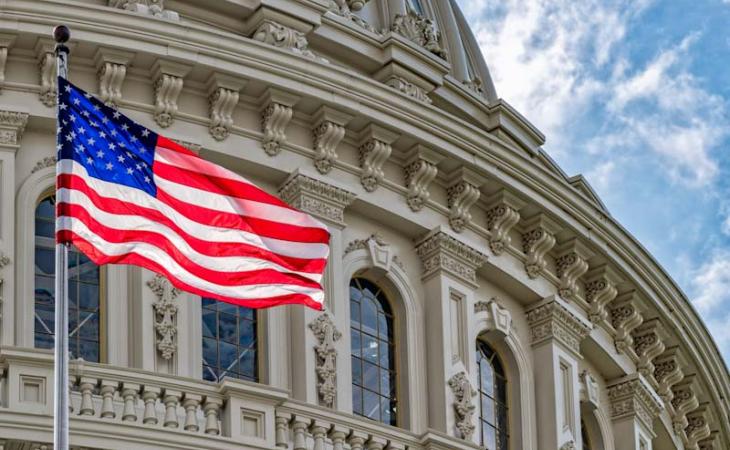This website uses cookies so that we can provide you with the best user experience possible. Cookie information is stored in your browser and performs functions such as recognising you when you return to our website and helping our team to understand which sections of the website you find most interesting and useful.
News
Legislative Update: Coronavirus Stimulus & Water Infrastructure
Coronavirus Stimulus
House Democrats on May 12 unveiled the “Health and Economic Recovery Omnibus Emergency Solutions (HEROES) Act,” their proposal for a massive $3 trillion “Phase 4” coronavirus stimulus package. The 1,815-page bill (H.R. 6800) contains a multitude of Democratic priorities that were left out of previous relief bills and considered a negotiating and messaging marker for House Speaker Nancy Pelosi (D-CA).
The package includes almost $1 trillion for state and local governments, another round of direct payments up to $6,000 to households, and language to strengthen the Payroll Protection Program (PPP) after receiving feedback on some of the program’s shortfalls. The legislation would expand loan eligibility to nonprofits, regardless of size. It also heeds the appeal to prevent the Small Business Administration (SBA) from limiting a portion of the loans that can be spent on non-payroll costs if borrowers want the loans forgiven.
The bill ensures that PPP assistance is not treated as taxable income and also increases the time for borrowers to spend the loan funds from 8 weeks to 24 weeks. The legislation also answers the calls for guidance from many businesses trying to reopen. It would require the Occupational Safety and Health Administration (OSHA) to provide guidance by issuing a temporary emergency standard to protect workers at occupational risk of exposure to COVID-19.
The House is scheduled to consider the bill on Friday, May 15. Republicans have dismissed the measure as a Democratic “wish list,” giving it no chance of passing the Republican-led Senate. Senate Majority Leader Mitch McConnell (R-KY) and the White House have said that another stimulus package is “premature,” given the $9 trillion of aid already passed still being dispersed. But White House economic advisor Larry Kudlow has said that he and other advisers have been “informally” discussing the fourth package with lawmakers and believe there are some areas where there could be agreements on the needs for additional funding. Leader McConnell and other Republican members are showing signals that they are moving away from their “wait-and-see” position and start working on specific priority issues.
Furthermore, in a rare move on May 13, Federal Reserve Chair Jerome Powell warned that the U.S. economy could be locked in a multiyear recession if the Congress and White House didn’t authorize more aid to address the economic consequences of the coronavirus. If Democrats show unity during this vote, it will only strengthen their negotiating position and moves the ball in the Republican’s court.
Water Infrastructure
On May 6, the Senate Environment and Public Works Committee unanimously agreed to approve two water infrastructure bills that could be included in a comprehensive Senate infrastructure package. “The America’s Wastewater Infrastructure Act of 2020” (AWIA 2020, S. 3591) would authorize $17 billion in new infrastructure projects, including up to $5 billion to help communities repair and update wastewater and irrigation systems. “The Drinking Water Infrastructure Act of 2020” (S. 3590) would reauthorize the Clean Water Revolving Fund and the Safe Drinking Water Act emergency fund to help communities meet their wastewater and drinking water infrastructure needs.
The legislation was introduced last month by committee Chairman John Barrasso (R-WY) and ranking member Tom Carper (D-DE) intending to build upon the committee’s bipartisan 2018 water infrastructure legislation. President Donald Trump has called upon Congress to pass comprehensive infrastructure legislation after the U.S. deals with the coronavirus pandemic. Meanwhile, Democrats are calling on including infrastructure in a future coronavirus stimulus package.


